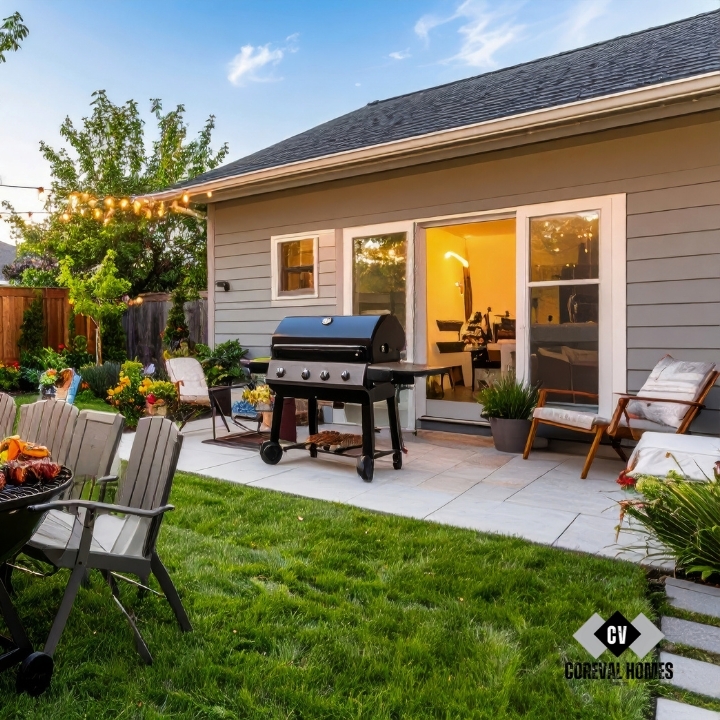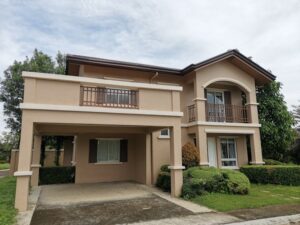Building a backyard studio in Vancouver offers an excellent way to expand functional living or workspaces while maximizing property value. However, one of the most critical early decisions is the type of foundation to use, which impacts structural stability, cost, and compliance with the stringent 2025 BC Building Code.
Choosing between a concrete slab foundation and pier foundation for a backyard studio involves careful evaluation of soil conditions, site drainage, seismic considerations, and long-term durability. In this expert guide, CoreVal Homes—leading custom home and backyard studio builders serving Vancouver and Metro Vancouver—breaks down the technical requirements, benefits, and challenges of each foundation type to help homeowners make an informed decision.
Understanding Vancouver Backyard Studio Foundations
Foundations are the structural base that transfers the weight of a building to the ground. For backyard studios—often considered part of accessory dwelling units (ADUs) or laneway homes—the foundation must meet provincial building codes, city bylaws, and be engineered to withstand local soil and seismic conditions.
The 2024 BC Building Code Impact
Since March 10, 2025, all new backyard studio foundations in Vancouver must comply with the 2024 BC Building Code, which includes updated seismic design requirements and energy efficiency standards. Section 9.23.13 of the code specifically addresses bracing for lateral loads caused by wind and earthquakes, particularly critical in seismic-prone BC. Foundations must be engineered for site-specific conditions, with inspections required before above-grade construction continues.
Concrete Slab Foundation for Vancouver Backyard Studios
A concrete slab foundation, also called “slab-on-grade,” consists of a thick, reinforced concrete pad poured directly onto compacted soil. It serves as both the structural footing and the finished floor for the studio.
Technical Advantages
- Structural Solidity: A typical slab in Vancouver backyard projects is 6 to 10 inches thick with steel rebar reinforcement, providing a robust platform for heavy loads.
- Energy Efficiency: Concrete slabs retain heat, reducing heating costs through thermal mass, a valuable feature in Vancouver’s temperate climate.
- Moisture Resistance: Properly insulated slabs with vapor barriers mitigate moisture migration, preventing mold and wood rot common in damp climates.
- Low Maintenance: Concrete does not rot or attract pests, extending the foundation’s lifespan.
Cost and Installation
Concrete slabs tend to be moderately priced but require professional site preparation, including soil compaction and sometimes soil stabilization if the ground is unstable—common in some Vancouver neighbourhoods with glacial till or clay soils. The overall cost for slab foundations in BC could range from $8,000 to $20,000 depending on size and soil conditions, factoring labour and materials.
Challenges
- Soil Stability Requirements: Slabs demand firm soil and good drainage. Expansive or loose soils may lead to cracks and uneven settling if not adequately prepared.
- Seismic Considerations: Given Vancouver’s seismic risk, slab foundations must include lateral bracing and reinforced edges to prevent structural failure during earthquakes, raising engineering costs.
- Lack of Crawlspace: Repairs and retrofits to utilities below the floor are more complex since there’s no accessible sub-floor crawl space.
Pier Foundation for Vancouver Backyard Studios
Pier foundations elevate the structure using concrete columns or blocks (‘piers’) placed deep in the ground, supporting horizontal beams that hold up the flooring system.
Technical Advantages
- Elevated Structure: This design lifts the studio off the ground, minimizing flood risk and moisture intrusion, particularly beneficial in flood-prone or poorly drained yards.
- Access to Utilities: Crawl spaces under the studio provide convenient access to plumbing, electrical, and HVAC systems, facilitating maintenance and upgrades.
- Adaptability: Pier foundations are more forgiving of slight soil movements common in coastal Vancouver areas, reducing the risk of cracking.
- Faster Construction: Piers can be installed with less site disruption and dry faster than full concrete slabs, accelerating timelines.
Cost and Installation
Pier foundations typically cost more than simple slab foundations by about 10-20%, mainly due to the additional framing and materials needed for the crawlspace and floor system. They require skilled carpentry and proper underpinning to ensure lateral stability. Estimated cost ranges for backyard studios in BC are $10,000 to $25,000 depending on size, materials, and site conditions.
Challenges
- Maintenance Needs: Buildings on pier foundations require periodic inspection for moisture damage, wood rot, and pest infestation, especially in Vancouver’s moist climate.
- Thermal Insulation: Crawlspaces can lead to energy loss if not properly insulated and sealed, increasing heating costs.
- Building Code Compliance: They must meet enhanced lateral bracing and seismic tie-down requirements per the 2024 BC Building Code, which may increase upfront costs.
Comparison Table: Concrete Slab vs Pier Foundations for Vancouver Backyard Studios
| Feature | Concrete Slab | Pier Foundation |
| Foundation Type | Solid poured concrete slab serving as both floor and footing | Raised piers supporting beams and suspended floor |
| Cost Range (BC, typical) | $8,000 – $20,000 | $10,000 – $25,000 |
| Soil Suitability | Stable, well-drained soil with compaction | Adaptable to slightly unstable or moist soils |
| Drainage | Requires excellent site drainage | Elevated design mitigates moisture intrusion |
| Seismic Resilience | Reinforced slab with engineered lateral bracing | Elevated, flexible with seismic tie-downs |
| Maintenance | Very low, no crawlspace to maintain | Requires periodic inspection and pest control |
| Energy Efficiency | High thermal mass and tight base | Needs insulation for crawlspace to avoid heat loss |
| Access to Utilities | Limited underfloor access | Easy access to plumbing, electrical, HVAC |
| Construction Time | Longer curing time, site prep | Faster above-ground framing possible |
CoreVal Homes Expertise in Vancouver Backyard Studios
CoreVal Homes is proud to serve Vancouver and the wider Metro Vancouver area—including Burnaby, Coquitlam, New Westminster, and Richmond—with expert custom backyard studio builds. Certified by BC Housing with decades of home building experience, CoreVal Homes helps homeowners navigate foundation choices aligned with the 2024 BC Building Code. From initial site assessments and engineering consultations to final inspections, CoreVal Homes ensures your backyard studio foundation is optimally designed for safety, durability, and performance.
Closing Thoughts
Choosing the right foundation for a Vancouver backyard studio is crucial for long-term success, especially under the evolving 2024 BC Building Code requiring enhanced seismic and environmental standards. Concrete slab foundations offer a solid, low-maintenance base ideal for stable soil, while pier foundations provide adaptability and utility access for challenging sites. Understanding these technical nuances and working with experienced builders like CoreVal Homes can make the difference between a headache-free project and costly future repairs. Investing time in foundation planning pays dividends in the quality and longevity of your new backyard studio.
If interested in learning more about backyard studio foundations or starting your project with trusted Vancouver builders, contact CoreVal Homes for a consultation and tailored foundation solutions.
FAQs
- What kind of soil testing is needed before choosing a foundation for a backyard studio in Vancouver?
Soil testing typically includes a geotechnical assessment to analyze soil composition, bearing capacity, and drainage characteristics. This ensures the foundation type selected will perform well and comply with local building codes. - Can CoreVal Homes assist with the permitting process for backyard studios in Vancouver?
Yes, CoreVal Homes provides full support navigating municipal permitting requirements to ensure your backyard studio is approved swiftly and meets all legal standards. - How long does construction typically take for a backyard studio foundation in Vancouver?
Foundation installation usually takes 1-2 weeks depending on the site complexity, weather conditions, and foundation type (slab or pier). - Are there sustainable or eco-friendly foundation options available for backyard studios?
Yes, some projects incorporate recycled concrete or use low-carbon concrete mixes to reduce environmental impact while maintaining strength and durability. - Does CoreVal Homes offer customized foundation solutions for unique lot conditions?
Absolutely. CoreVal Homes custom engineers foundations tailored to unique soil, slope, or flood risk conditions across Metro Vancouver, ensuring safety and longevity.
People Also Ask
- What is the minimum distance required between a backyard studio foundation and property fences in Vancouver?
Typically, local bylaws require a minimum setback of 1.5 to 2 feet from property lines, but this can vary by municipality and should be verified during planning. - Are insulation requirements for backyard studio foundations in Vancouver different from those for main homes?
Yes, backyard studios often have specific energy efficiency guidelines under the BC Building Code to ensure proper insulation beneath slabs or in crawlspaces. - Can a gravel pad foundation be used for a backyard studio instead of concrete or piers?
Gravel pads are sometimes used for smaller, temporary studios but are generally not permitted for permanent structures due to lack of stability and code compliance. - What are common maintenance tasks for pier foundations in Vancouver’s climate?
Routine inspection for moisture damage, pest control treatments, and ensuring crawlspace ventilation is adequate are essential for long-term durability. - How do seismic considerations affect foundation design for backyard studios in Vancouver?
Seismic design requires foundations be anchored securely with lateral bracing and reinforcement to withstand earthquake forces, which can increase engineering and material costs.


